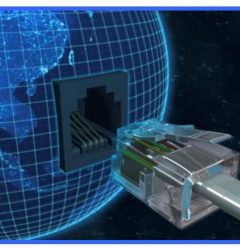
Call center and contact center sound similar, however, their functions and purposes are very different. Without further ado, let’s break down the differences between the two!
What Is a Call Center
A call center is a business that employees agents to handle inbound and/or outbound phone calls.
Call centers usually integrate an IVR system in order to save money, increase productivity, expand call capacity, and stop missing calls. The call center industry is changing with emerging trends like omnichannel communications, therefore, having tools like an IVR system will help your business adapt easily.
Advantages and Disadvantages of Call Center
Advantages: -The demand for call center services is high -Customers can speak to live agents -Round-the-clock customer service available -Scalability Disadvantages: -Lack of product or service awareness -Less control to measure performance -Can be language barriersWhat Is a Contact Center
A contact center will handle business communication between a customer and a business. The business is able to use the contact center to handle the communication with their customers, so they can focus their time on other tasks. This communication would include phone calls, emails, chatbots and social media. In fact, since contact center agents have many forms of communication the managers prefer to use VoIP calls because they are inexpensive, scalable to company size, and offer flexibility that other phone systems can’t offer.
Advantages of Real Time Feedback Contact Center and Disadvantages
Advantages: -Have the ability to create detailed customer profiles -Better customer experience -Can evaluate customer interactions across many channels Disadvantages: -Can’t always handle large volumes of customers -Can be language barriers -Quality can be costlyDifference Between Contact Center and Call Center
The main difference between a call center and a contact center is the methods used for communication and the customer experience. While one tends to focus more on quantity, another focuses more on quality. Let’s get into the 6 main differences between call centers and contact centers to better understand the benefits and downsides.
Channels of Communication
Call centers’ only form of communication is through phone calls. Agents at the call centers answer calls on behalf of another company and then relay that information to the company who hired them.
Contact centers have many forms of communication, including: chatbots, phone calls, emails, SMS, social media, etc.
Types of Agents
While call center agents are required to handle inbound and outbound calls, a contact center must be able to handle all forms of communication. Both positions require fast learners and the ability to work in a fast paced environment, however, much more skills are needed to work in a contact center.
Agents of contact centers will be more selective because they don’t typically focus on quantity of calls, they focus on quality of communication in all forms.
Call center agents are in much higher demand because the centers need many agents to handle the call volume. Also, many call centers have software that helps conduct the call, by providing scripts, and instructions. Therefore, the agents need less skill sets for this type of position.
Automation Services
Automation is incredibly valuable to both a call center and a contact center. By using automation the agents are able to focus their attention on time sensitive tasks, while still getting daily tasks done like sending out pre-recorded voicemails.
Call centers will typically use automated dialer software, because that helps the agents to make calls, take calls, set appointments, make notes, and send information quickly. This type of software automates the tedious daily tasks in order to maximize the agent’s time and increase efficiency.
Contact centers will use omni-channel contact center software like a power dialer with click-to-call and an integrated CRM. This would allow the agent to automate responses and answer questions in many channels of communication. Having automation software for a contact center is key to freeing up the agents time to give a better customer experience.
Customer Experience
Contact centers have the advantages to give better customer experience because they have multiple forms of communications, they have software that creates detailed customer information profiles, and the agents know how to serve the customers better based on the data they have on the person.
Management Software
With the newest types of call center technology there are built in tools, so management can observe and teach the agents. For instance, most power dialers offer silent monitoring and whisper coaching. Those allow the manager to listen in on calls and even speak with the agent during a live call. Another notable management tool is reports created by power dialers. Reports are automatically created based on the criteria that you wish for the monitor or measure. Having these reports helps you understand what is working and what is it, so you can make a plan geared towards your goal.
Measuring KPIs
The KPI’s can vary depending on whether or not its a call center or contact center but here are a few general ones that most businesses used in the telecommunication industry:
- First Call/Contact Resolution
- Average Handle Time
- Average Hold/Wait Time
- Contacts Per Hour
- Conversion Rate
- Quality Assurance Metrics
- Customer Satisfaction
Some metrics are harder to measure than others simply because there aren’t numbers to indicate the success rate. In situations where KPI’s cannot be measured by numbers, having quality assurance teams, customer surveys, and calls disposition according to the agent, will need to be used.
Why You Need to Transform Your Call Center Into an Omnichannel Contact Center
As with any business, you will face difficulties in running a call center. One difficulty is being bombarded with excessive tools and technology in order to turn your call center into a contact center. Luckily, there is a cloud-based Telephone Answering Service solution that combines every product into one!
FAQ:
- What is the difference between a contact center and a call center? A: A contact center lets you interact with your customers through multiple channels, while a call center handles customer service through phone calls.
- Contact center vs call center: which one should you choose? A: When comparing the two options, a contact center lets you track much more customer insights and their levels of engagement than a call center. While a call center can only provide customer service through calls, a contact center is much more optimized for omnichannel communication. Bottom line is you should always turn to your customers and see what communication style they prefer.
- How does a contact center work? A: Contact centers work with customized scripts for every conversation and advanced technology which help them interact in a more efficient way with their customers and provide them with a faster solution in every channel of communication.
- What are the skills of a call center agent? A: The top 5 skills every call center agent should have are: communication skills, memorization, creativity, speed, and organization.
- What is cloud based contact center? A: Cloud call centers are platforms that handle customer calls over the internet. They provide their call center technology remotely through the cloud which helps businesses manage countless interactions with their clients.


